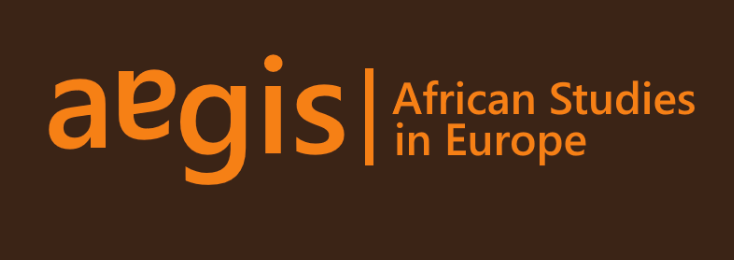
CRG African Literature
January 17th 2024
—
Matin (10h - 13h)
Extension critique de l’« anthologie écopoétique située des littératures africaines »
Le projet d’« anthologie écopoétique située des arts et des littératures » propose une cartographie en ligne des lieux écologiquement menacés sur le continent africain et de leur prise en considération littéraire et artistique. Il s’agit à la fois de rendre compte de l’ampleur et de la variété des agressions écologiques en cours (effets du réchauffement climatique, grands projets miniers ou industriels, pressions hydrologiques, etc.) et de la diversité des réponses culturelles et sociales qui sont apportées à ces défis.
L’objectif est de cartographier les pratiques artistiques et littéraires en faveur de la défense de l’environnement en différents endroits du continent africain. Le parti pris est d’appréhender la crise environnementale au niveau local, là où elle est éprouvée par des populations. Cela peut se traduire par une prise en charge littéraire et artistique qui recense, constate, condamne les dégradations environnementales, etc. Une telle cartographie montre que les dynamiques locales sont des points d’appui pour esquisser une cosmopolitique des lieux.
L’objectif élargi de ce projet sera de regrouper, pour nous chercheur.euses en littérature africaine et/ou en humanités environnementales, les références critiques, littéraires, artistiques, écologiques du continent. Cela pourrait constituer une base de données spécifiques que nous pourrions alimenter au fur et à mesure.
Les participant.e.s pourront ajouter un point sur la carte en présentant brièvement l’œuvre et le contexte écologique des œuvres. Toutes les langues sont absolument bienvenues pour enrichir ce projet. Nous suggérons de venir avec un point en tête, c'est à dire une œuvre correspondant à un problème écologique, et de pouvoir le présenter brièvement (maximum 15 minutes) aux autres participant.e.s.
Pour toute question, n’hésitez pas à écrire aux coordinatrices de la matinée,
Camille Lavoix camille.lavoix@uni-wuerzburg.de et Margaux Vidotto margauxvidotto@orange.fr.
—
Après-midi (14h30- 16h30)
Que font les lieux à la recherche sur les littératures africaines ?
La référence de plus en plus fréquente à des lieux précis dans les études littéraires africaines a des effets sur les méthodologies de recherche que nous voudrions interroger au cours de cette journée d’étude. Il s’agira d’échanger nos expériences sur la question de l’articulation entre les textes que nous étudions, les lieux où ils sont rédigés, archivés ou publiés et les lieux dont ils parlent. Y a-t-il un sens à prendre en compte une territorialité des textes littéraires et des archives ? Quelle place donnons-nous au terrain dans notre travail de recherche ? Comment peut-on parler d’un attachement au lieu ? La prise en compte des lieux est-elle la condition d’une recherche située ? Autant de questions dont nous voudrions discuter à partir de quelques exemples de recherches en cours. Nous prévoyons d’écouter 4 présentations suivis de discussions.
—
Merci d’envoyer vos propositions (pour une présentation de maximum 20 minutes) aux coordinateurs de l’après-midi,
Xavier Garnier xavier.garnier@sorbonne-nouvelle.fr et Elara Bertho elara.bertho@gmail.com .
—
La journée se déroulera en hybride, avec une forte préférence pour l’accueil en présentiel. Une aide financière pourra être accordée aux jeunes chercheurs ; se rapprocher dans ce cas du comité d’organisation.
Les présentations en français devront être accompagnées d’un powerpoint résumant le propos en anglais.
—
Morning (10am - 1pm)
Critical extension of the "situated ecopoetic anthology of African literature" project
The "situated ecopoetic anthology of arts and literature" project proposes an online cartography of ecologically threatened places on the African continent and their literary and artistic consideration. The aim is to reflect both the scale and variety of current ecological aggressions (the effects of global warming, major mining or industrial projects, hydrological pressures, etc.) and the diversity of cultural and social responses to these challenges.
The aim is to map artistic and literary practices in defense of the environment in different parts of the African continent. Indeed, the purpose is to understand the environmental crisis at the local level, where it is experienced by populations. This can take the form of a literary and artistic approach that records, observes and condemns environmental degradation etc. Such mapping shows that local dynamics are the basis for sketching out a cosmopolitics of place.
The broader aim of this project will be to bring together, for us researchers in African literature and/or environmental humanities, the continent's critical, literary, artistic and ecological references. This could constitute a specific database that we could add to as we go along.
Participants will be encouraged to add a point to the map, briefly presenting the work and its ecological context. All languages are absolutely welcome to enrich this project. We suggest you come with a point in mind, i.e. a work corresponding to an ecological problem, and to be able to present it briefly (maximum 15 minutes) to the other participants.
If you have any questions, please do not hesitate to contact Elara Bertho elara.bertho@gmail.com ; Xavier Garnier xavier.garnier@sorbonne-nouvelle.fr ; Camille Lavoix camille.lavoix@uni-wuerzburg.de or Margaux Vidotto margauxvidotto@orange.fr
—
Afternoon (14.30 pm – 16.30 pm)
The role of places in the research on African literature
The more and more frequent reference to specific places in African literary studies has effects on the research methodologies that we would like to question during this afternoon. It will be an opportunity exchange our experiences on the question of the articulation between the texts that we study, the places where they are written, archived or published and the places which are referred in these texts. Is there any sense in taking in consideration the territoriality of literary texts and archives? What place do we give to the field in our research work? How can we talk about an attachment to place? Is considering places the condition of situated research? We welcome proposals that consider any aspect of place and African literature, including but also beyond the questions listed above. We plan to listen to 4 presentations followed by discussions.
Please send your proposals (for a presentation of maximum 20 minutes) to the afternoon coordinators,
Xavier Garnier xavier.garnier@sorbonne-nouvelle.fr and Elara Bertho elara.bertho@gmail.com.